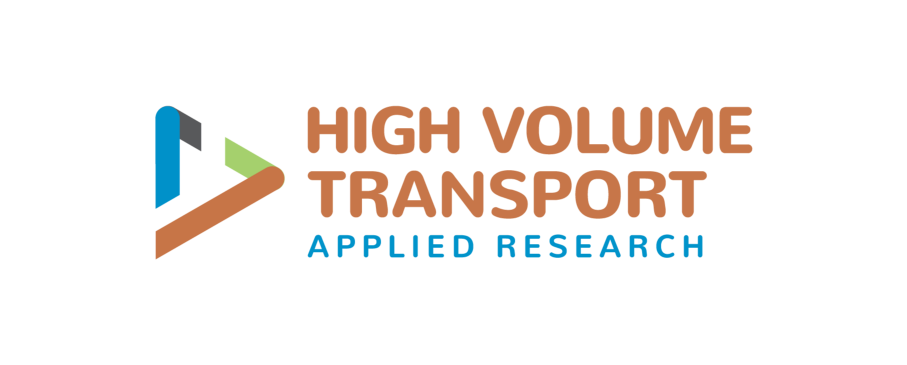Hello, and welcome from High Volume Transport applied research team. We are a five-year research programme funded by the UK Department for International Development (DFID) to generate evidence that will support increased access to transport services, more affordable trade routes, and safer, low carbon transport in low income countries.
From 2017–2021, this applied research programme will be managed by international development consultancy IMC Worldwide along national and regional transport corridors and within cities in low-income countries in Africa and South Asia.

Why this UK investment in transport research now?
Transport plays a key role in reducing isolation and poverty, and in facilitating economic activity.
Strong transport links can facilitate international trade transitions, which can boost national income, reduce poverty, and contribute to economic and social development. The transport sector in low-income countries is a very large recipient of aid and public funds for investment because it is fundamental to economic development.
Yet, transport sector research activity is minimal, and the evidence base for huge investment decisions is out of date and often inadequately specific to requirements.
Updating transport infrastructure practices in DFID focus countries
From 2017–2021, the High Volume Transport programme will commission cutting-edge research that updates technical best practice for transport infrastructure in low-income countries and share with country authorities so it is brought into practice. This will allow more cost effective and cleaner technical designs of infrastructure investments.
This means that decision-making process for the selection of projects is better informed and ensures impact on economic development and poverty reduction.
The High Volume Transport programme will improve the design of transport infrastructure in every DFID focus country and beyond. Each 1 percent gain on the cost effectiveness of transport infrastructure is worth potentially US$1bn per annum in Africa, and more than that in the future.

Recipients of this transport research
The recipients of the services are relevant transport decision takers and development policy makers, central and local government transport practitioners, private sector, civil society and other relevant stakeholders in these countries.
Intended outcomes for low-income countries in Africa and South Asia
- Increased access to transport services, more affordable trade routes and safer, lower carbon transport
- Evidence base strengthened on the most strategic and cost effective, safer and lower carbon passenger and freight transport investments and services
- Support to international poverty reduction by contributing to inclusive economic growth, and supporting the uptake of low carbon transport strategies to reduce green house gas emissions and that high volume transport infrastructure is resilient to stresses of climate change
- More inclusive transport, and resulting better access for vulnerable groups and the disabled to transport services in low-income countries
4 transport research themes that HVT will explore
Theme 1: Long distance strategic road and rail transport
Limited research specific to strategic road and rail transport networks in low-income countries exist, despite large investments by national governments, donors and development banks in transport infrastructure programmes.
Many African and Asian countries apply standards and specifications for road and rail infrastructure that are out of date and do not take account of advances in knowledge and evidence leading to costly over- or under-design.
Meanwhile, climate change is already threatening vital infrastructure. Meeting the increasing demand for transport infrastructure investment comes with an increasing need to invest in asset maintenance.
This theme considers the increasing volume of transport infrastructure assets and maintenance costs, and examines maintenance systems, dynamics, tools and methods that could be used in low-income countries in Africa and South Asia.
Theme 2: Urban transport
Many low-income countries continue to experience rapid urbanisation. Effective transport systems provide access to the workplace, markets, education, healthcare and recreational facilities that can support human and economic development. This theme focuses on harnessing the economic development of towns and cities through strong accessible urban transport planning, design, implementation and maintenance.
Theme 3: Low carbon transport
Transportation accounts for about 20% of world CO2 emissions. High volume transport is a key sector to focus on to help mitigate climate change. This theme includes technological and other solutions that promote low carbon transport solutions including non-motorised transport options.
Theme 4: Gender, vulnerable groups and inclusion in high volume transport
Women may be adversely affected by high volume transport, as they tend to make more frequent short journeys during off-peak hours and have less access to private transport. Women and children can be vulnerable to harassment on public transport, while poor siting of bus stops and termini can increase dangers for women, children and other vulnerable groups.
This theme examines opportunities that safe, secure and affordable transport provides for women, children and other vulnerable groups in the context of transport corridors and urban transport situations and captures research on road safety.
Want to learn about available transport research funding opportunities? Details on the IMC Worldwide website -> http://bit.ly/2rhIrzV
Coming up next
- In 2018, we are commissioning a series of state-of-knowledge papers on the four transport research theme areas. These papers will guide the focus and scope of the research that will be used to identify future primary research that may be undertaken in Part 2, starting later this year.
- For info about research funding opportunities within the Transport-Technology Research Innovation for International Development (T-TRIID), visit the IMC Worldwide website. T-TRIID is an initiative within the High Volume Transport programme to fund short projects based on innovative ideas/concepts that facilitate safer and more efficient transport in DFID priority countries in Africa and South Asia.
For partnerships, collaborations, and research info
We are looking for partnerships with research institutes, universities, private sector, foundations and government. Follow us here on Medium, join our newsletter community, and contact the HVT team through the IMC Worldwide website
Learn more about High Volume Transport

About IMC Worldwide
IMC is an international development consultancy that addresses some of the world’s primary development challenges. For more than five decades, we have offered development solutions in the fields of environmental management, disaster mitigation, infrastructure, engineering, and social development, frequently in regions affected by crises and conflict.

